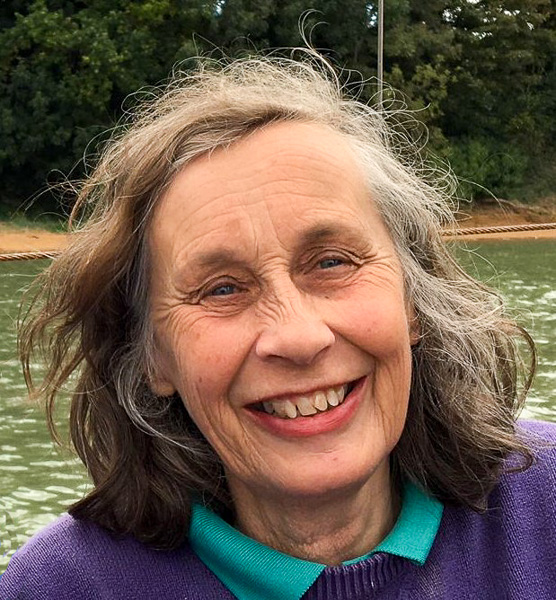Report by Julia Jones
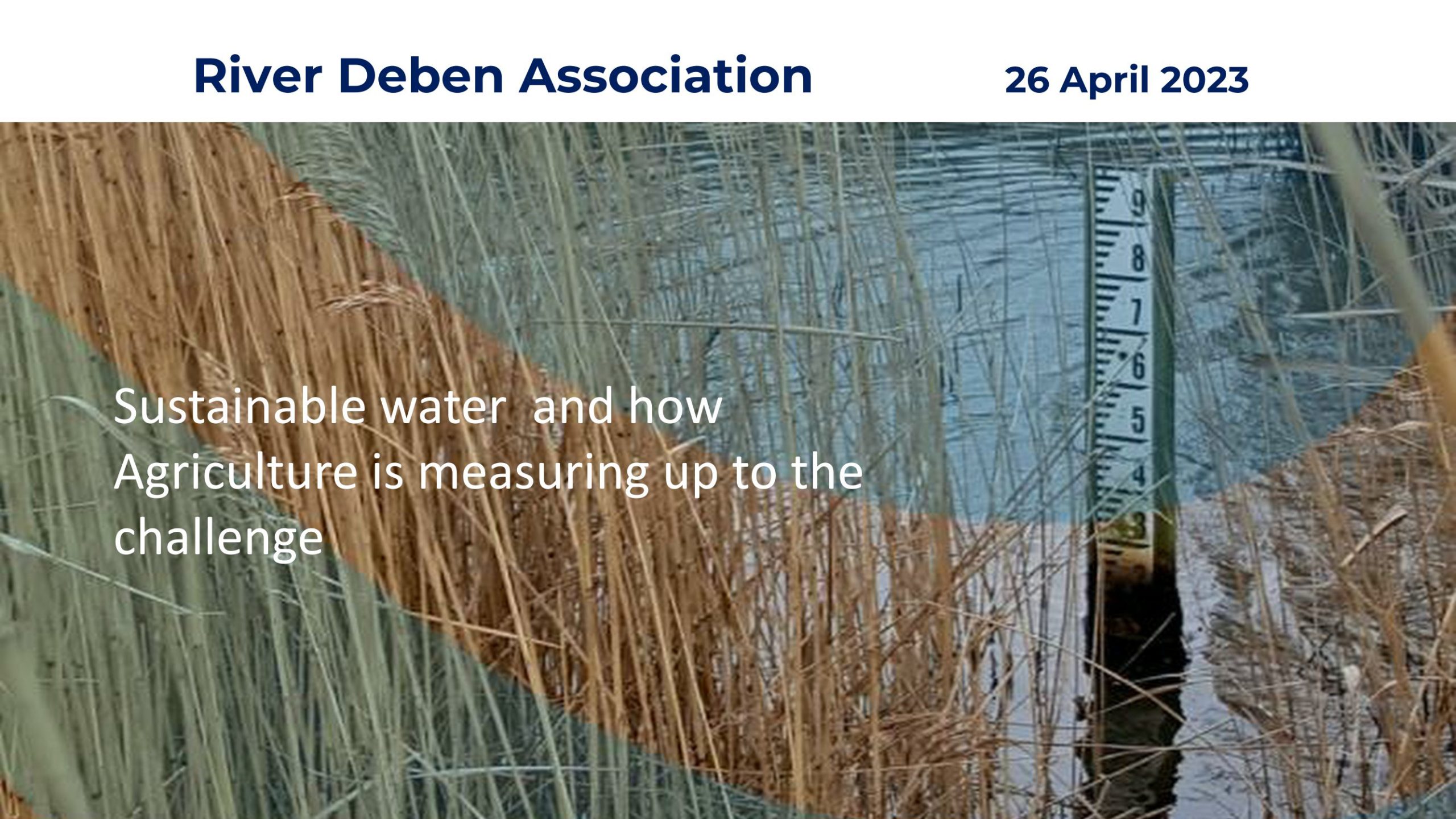
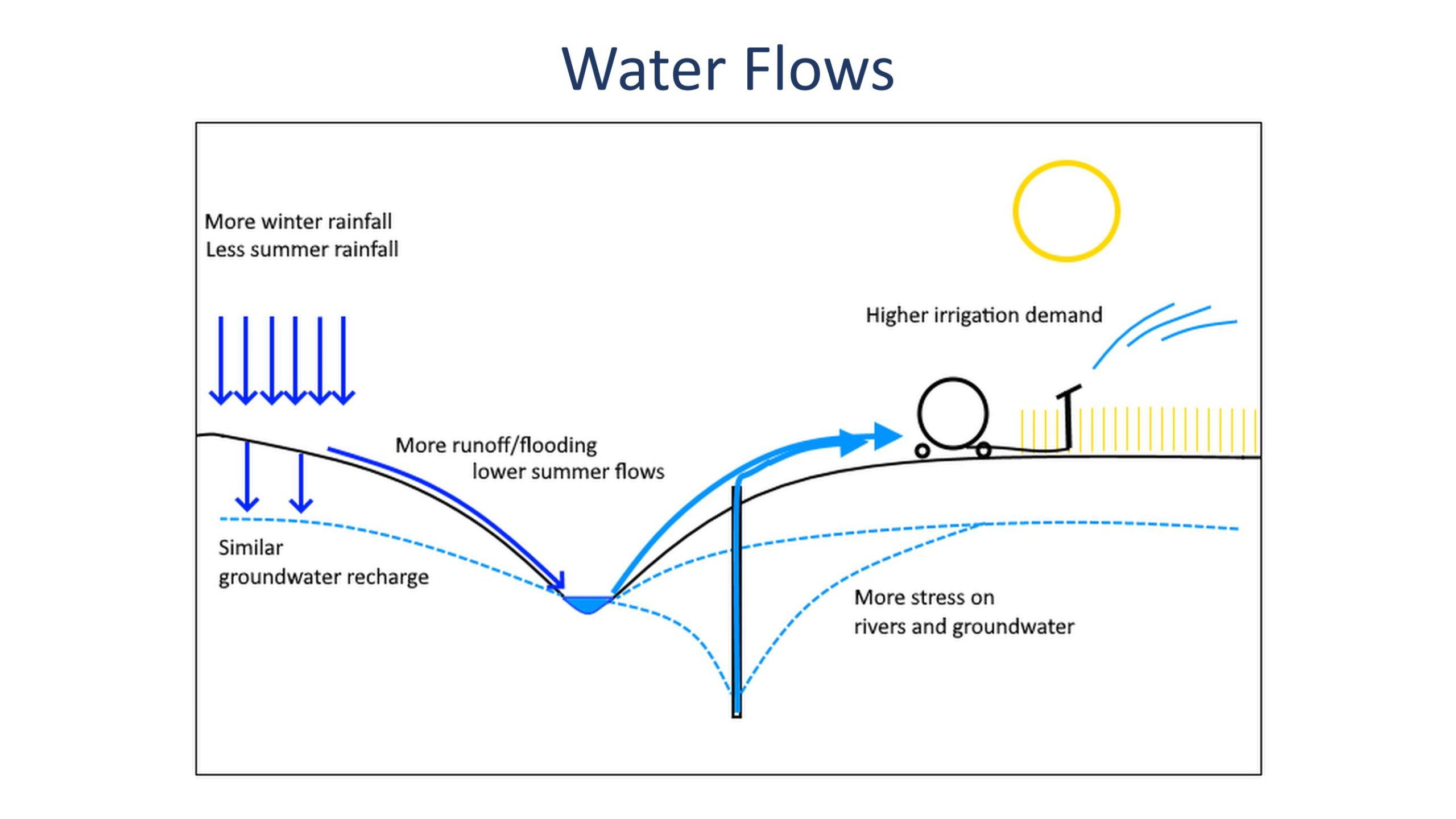
The speaker at this year’s AGM was John Patrick, founder member of the Felixstowe Hydrocycle (https://www.felixstowehydrocycle.com/).
His talk was detailed and fascinating. We are most grateful to him for allowing us to reproduce the slides from his presentation. This report can only skim the surface and hope to convey a few main points as understood by a completely non-technical audience member.
The central point was the response to global warming. In a period where we are likely to experience reduced summer rainfall, how can farmers supply the needs of their growing crops. This is of particular relevance to our area of Suffolk where vegetable crops such as carrots and early potatoes benefit from the light soil but need plenty of water. If we want to keep our food miles low, this matters to us all, not only to farmers.
Farmers cannot simply take water where and when they choose. They are dependent on the quantities allocated to them via abstraction licenses. Already these quantities are being reduced and some licences may be revoked altogether, even as the requirement for water increases. Eastern England is the driest area in the UK, it also has one of the fastest growing populations. John described it as already seriously water-stressed.
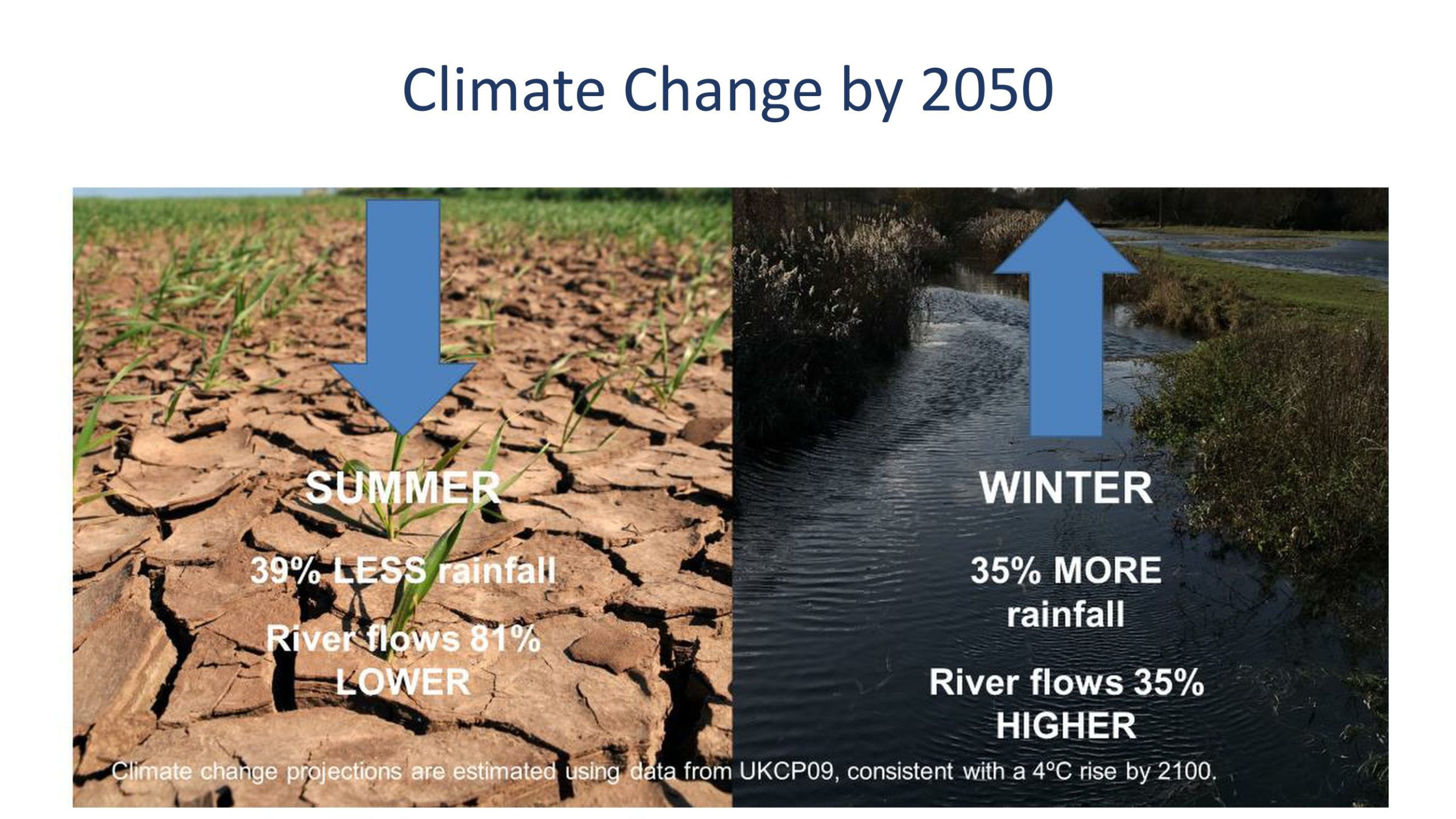
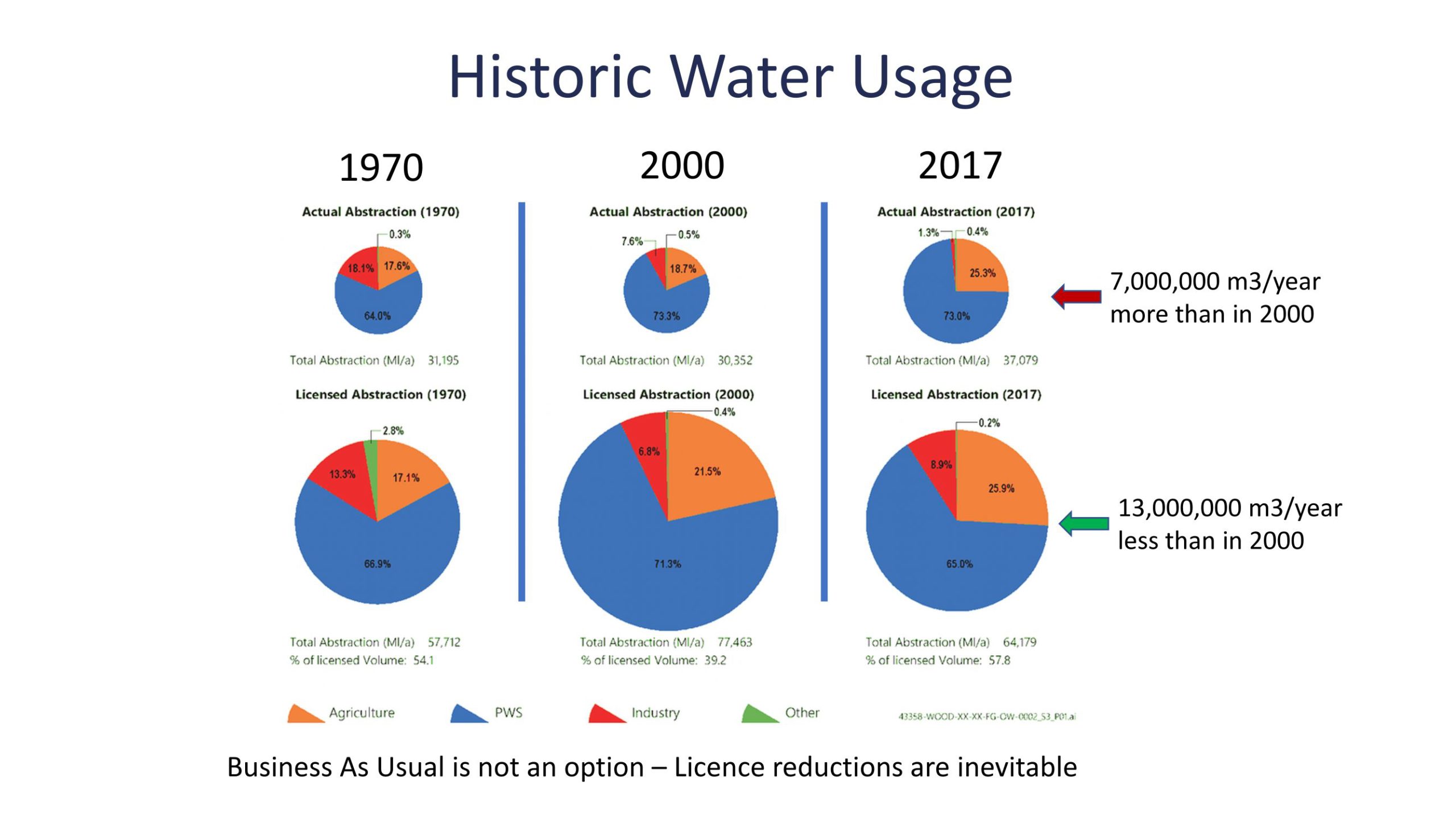
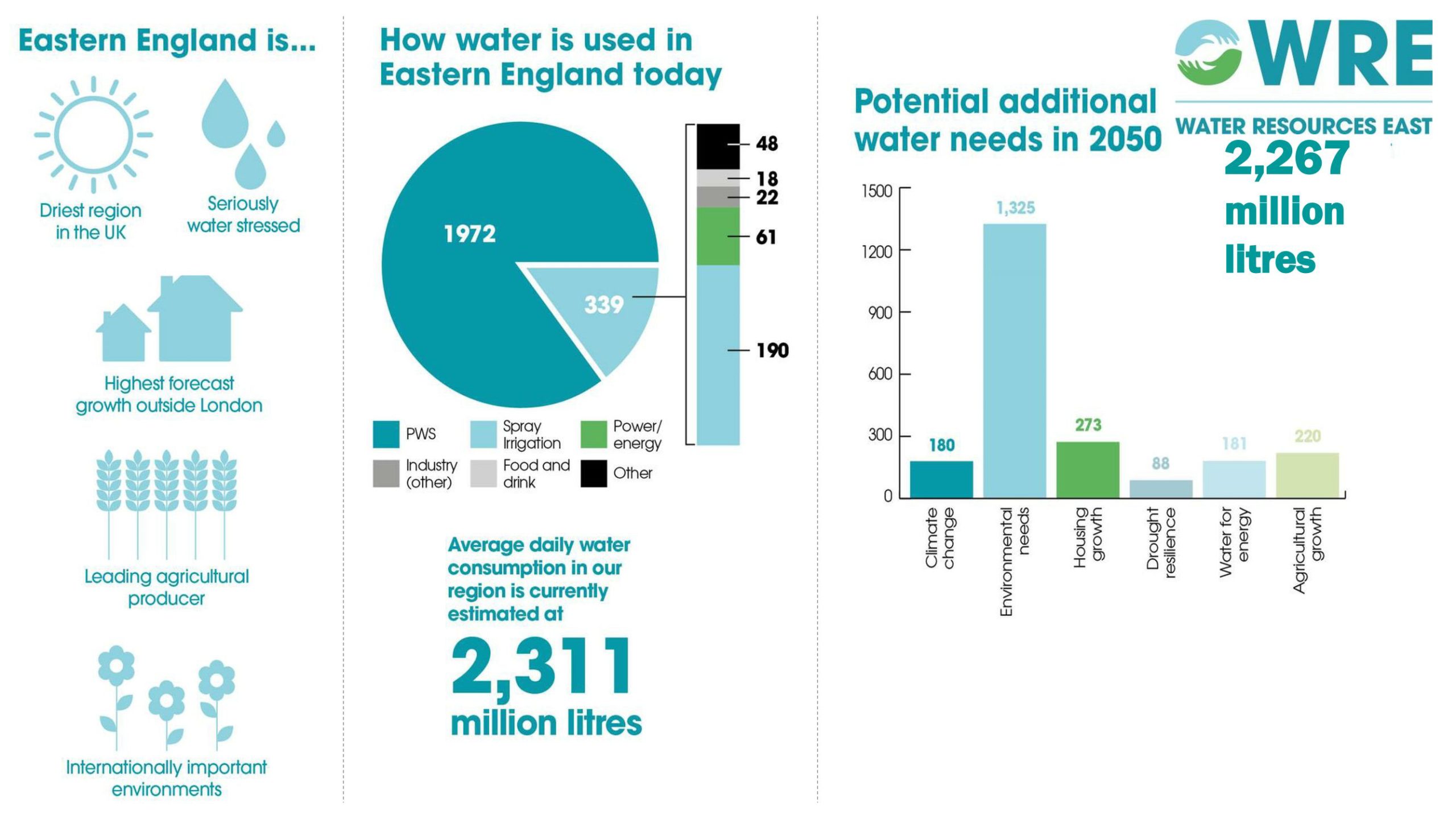
Water Resources East (wre.org.uk) was originally formed by Anglian Water to try to develop a more collaborative approach to water resource management. These days it’s an independent company forming part of a nation framework for water resource, led by the Environment Agency. John introduced a few of their ideas.
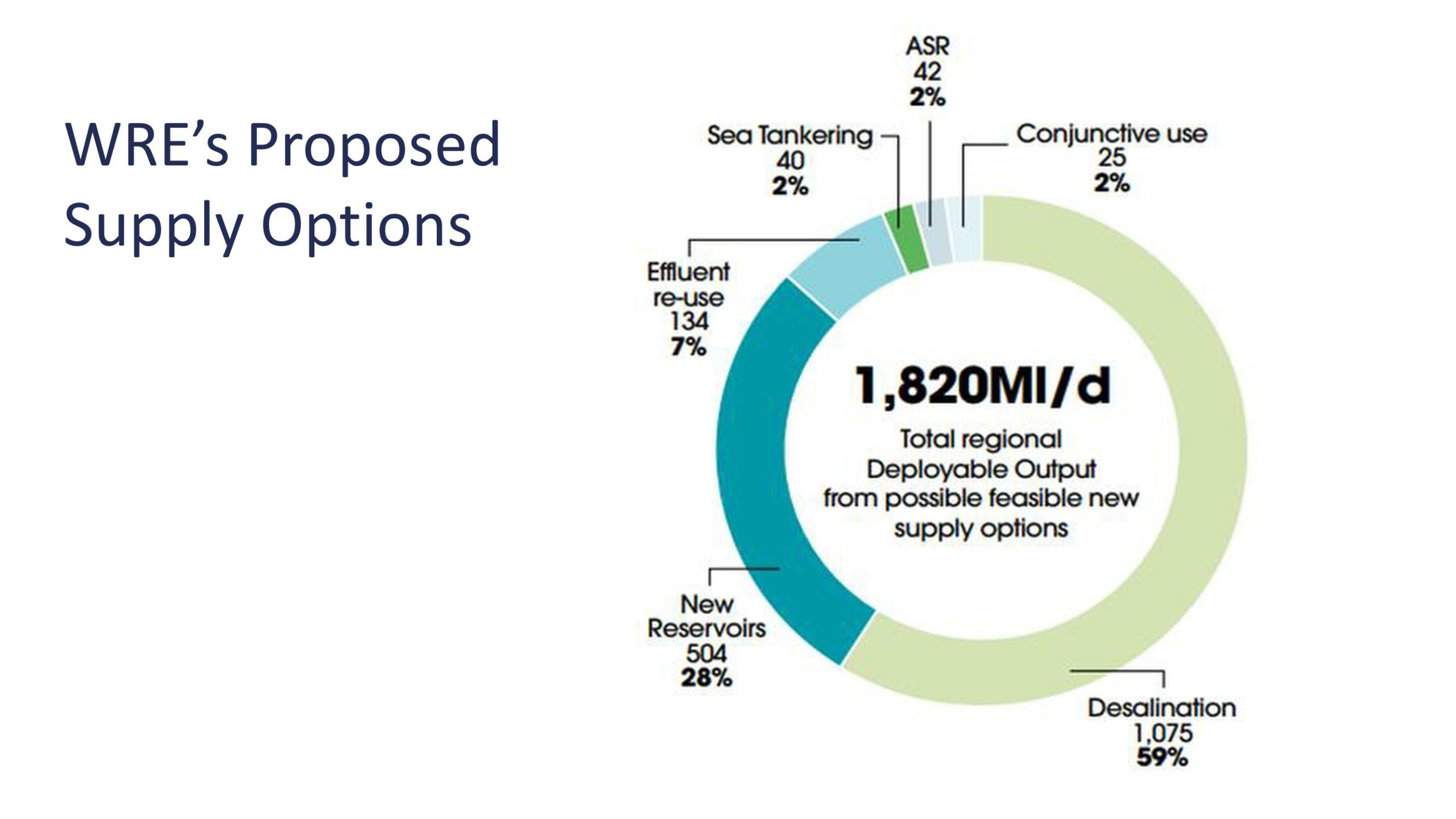
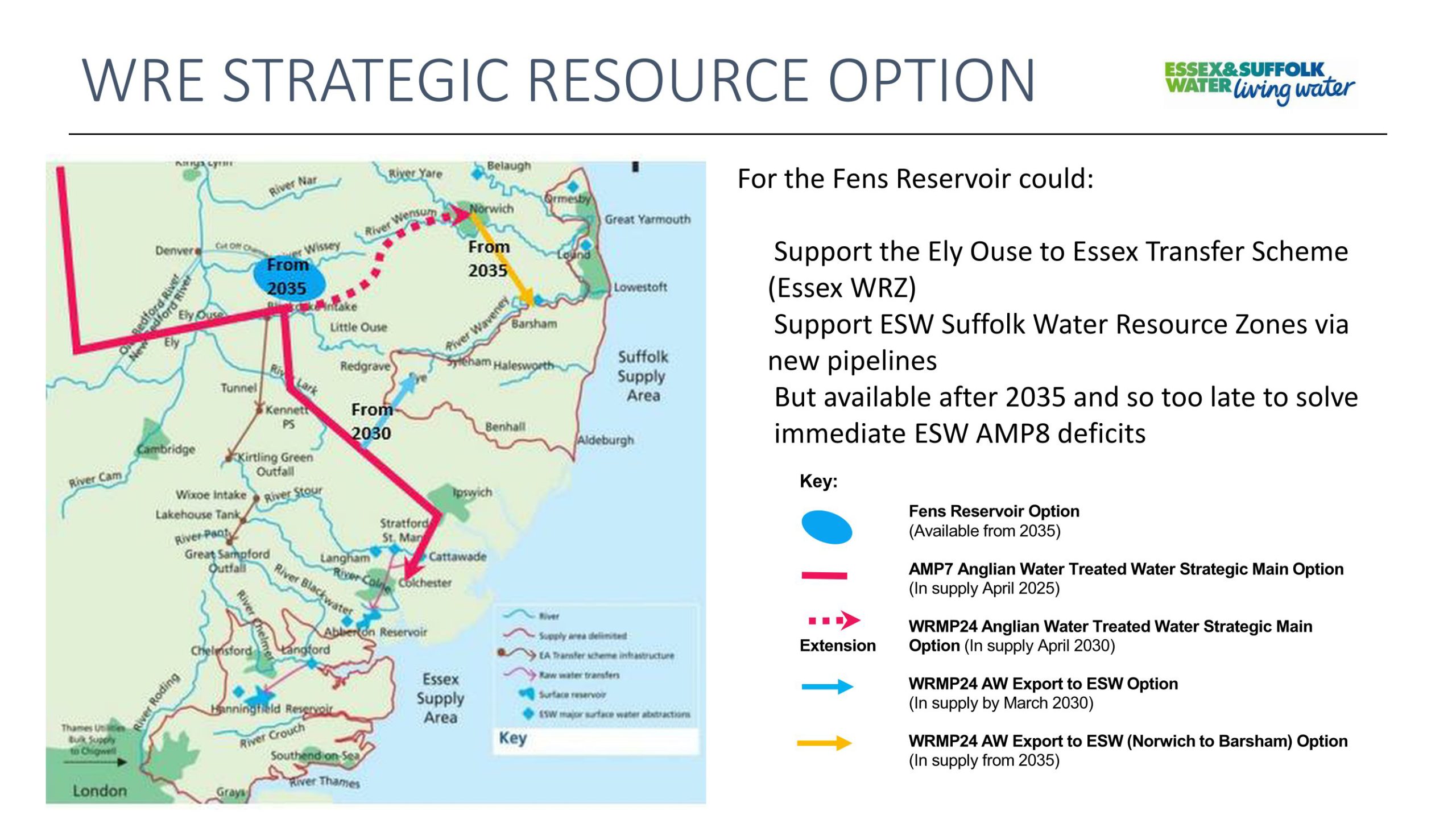
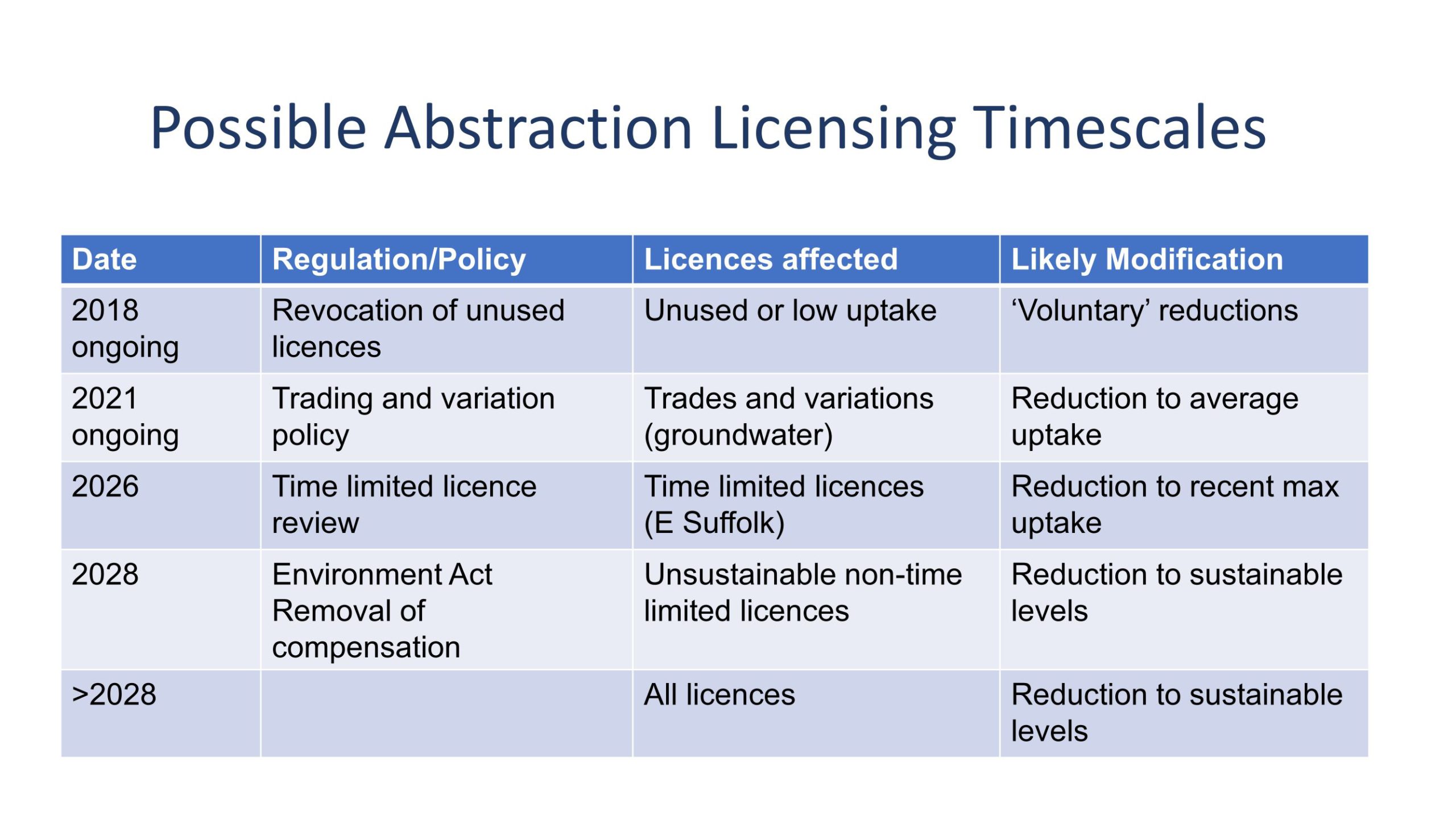
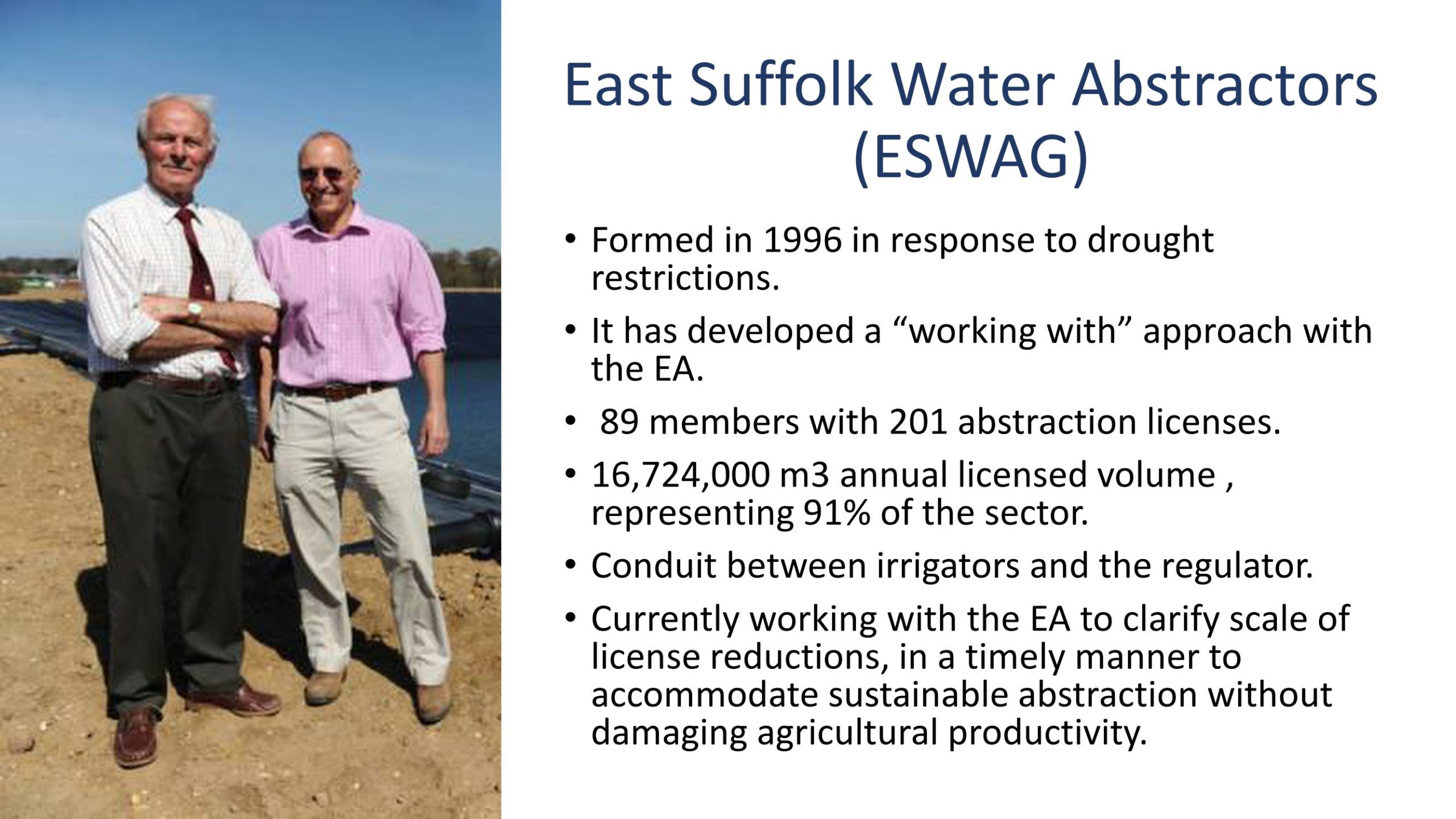
The problem facing East Suffolk farmers (and other water abstractors) feels much more immediate. Already their licences are being reduced as their water needs increase. It’s crucial for them to reduce water wastage and maximise potential if they want to maintain current levels of food production. To do this they have to work locally and collaboratively. If groundwater extraction is impacting river flows then they need a new approach.
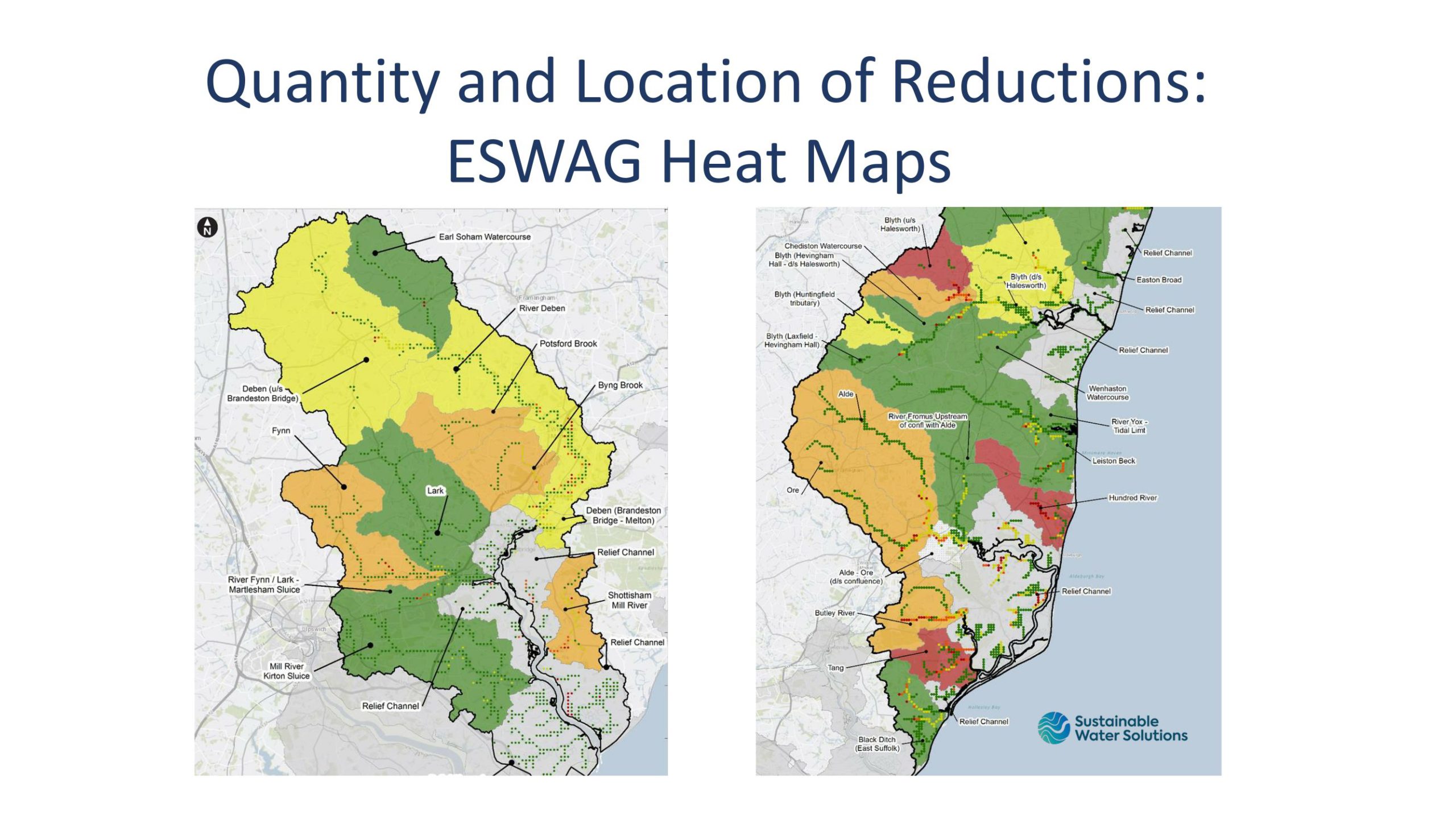
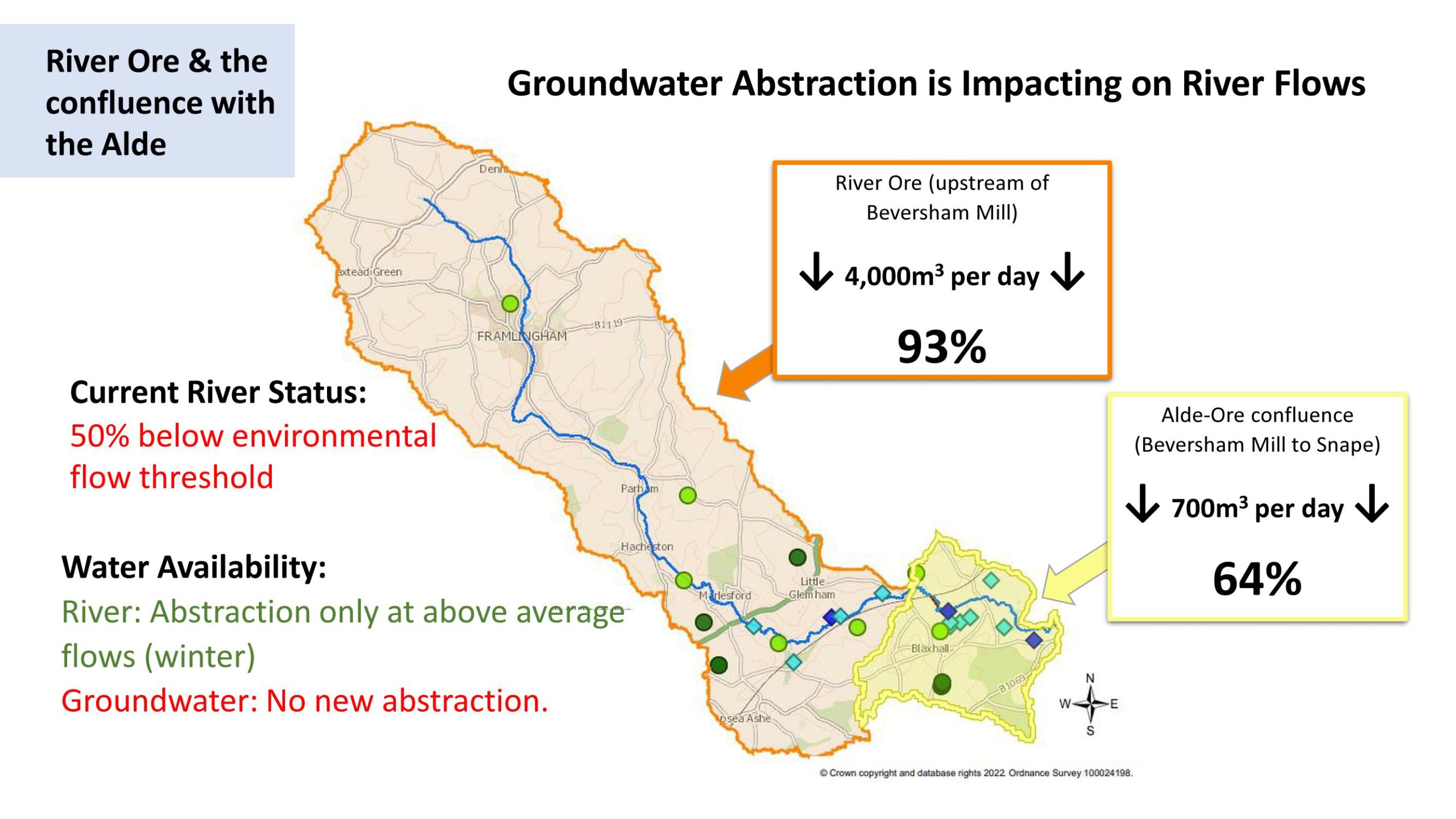
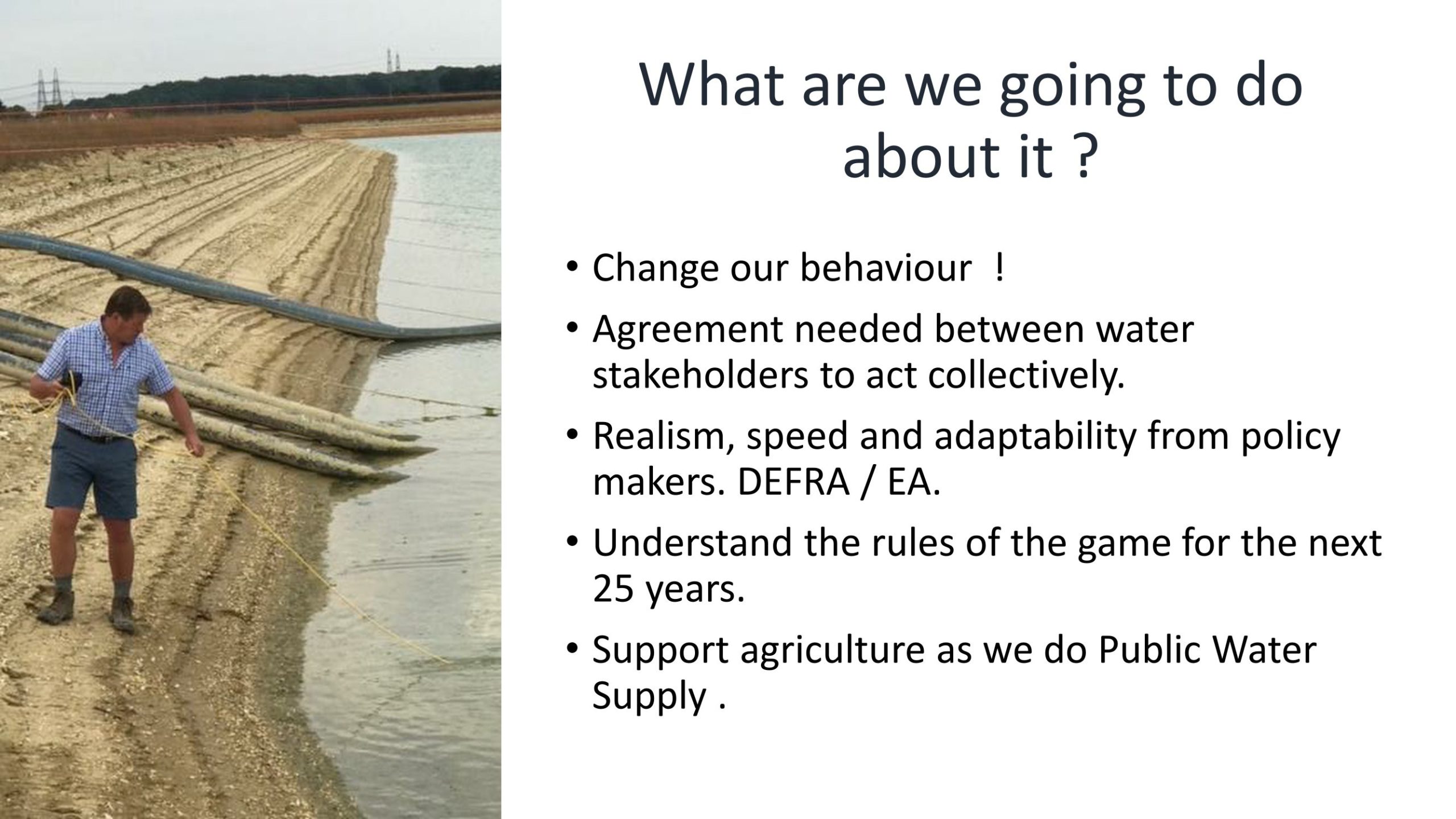
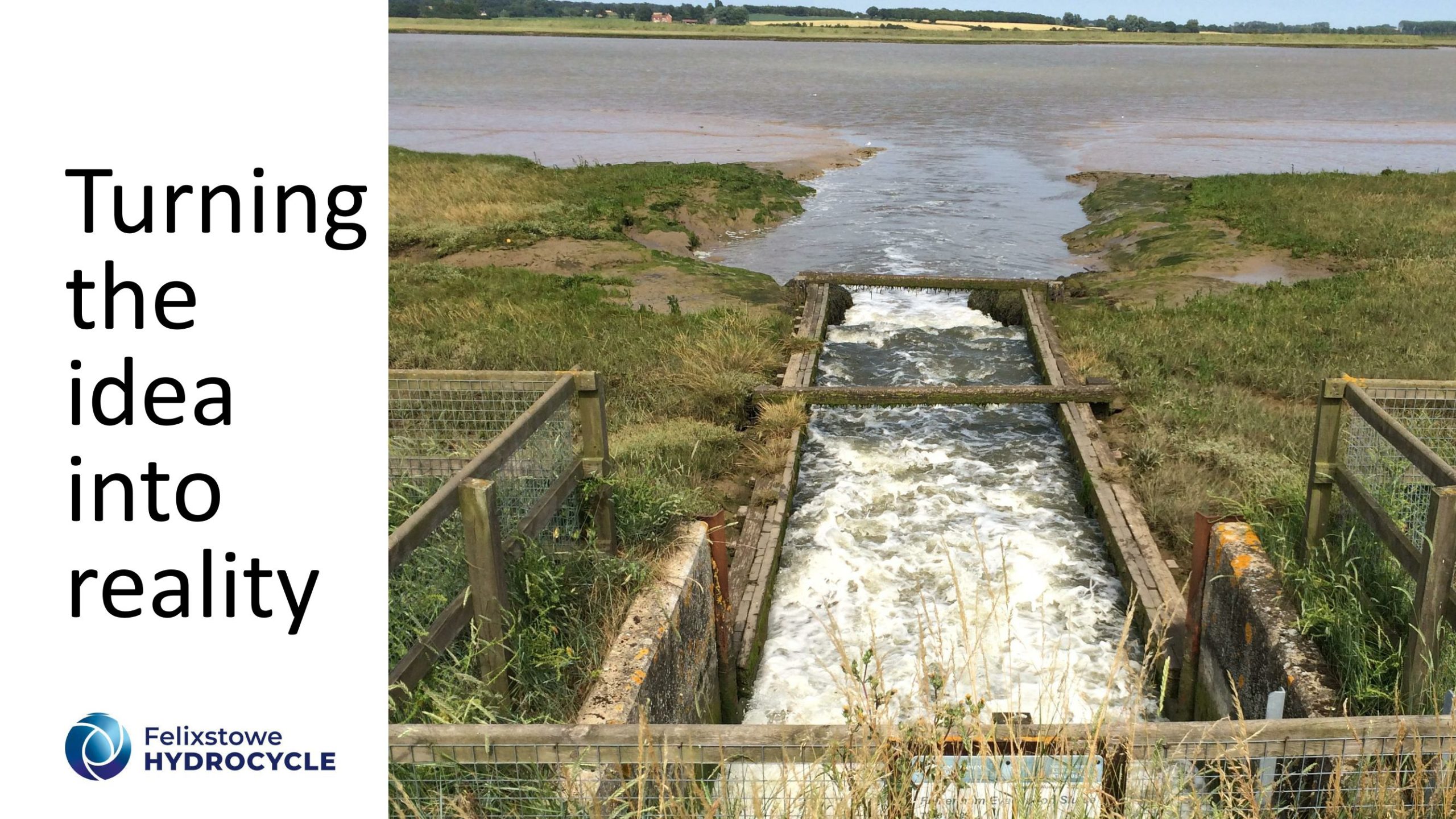
In the past a significant quantity of surplus water has arrived at the sea wall and been pumped into the sea by the IDB (Internal Drainage Board). This is not directly from the fields but is drainage water from urban areas, together with run off from the A12 and A14, some natural river flows and some land drainage from farming land drainage systems. By co-operating with the IDB, the Felixstowe hydrocycle reverses this system to pump water back inland.
Previous high volumes of water being pumped into the Deben in the past have had a damaging effect on the saltmarshes as well as wasting a potential resource. Salt marshes, as we all know, matter to global warming as a hectare of saltmarsh can ‘fix’ as much carbon as a hectare of rainforest – and there aren’t many rain forests in Suffolk!
The Felixstowe hydrocycle reduces the freshwater wastage, though does not stop it entirely as that would upset the environmental balance in a different way. Some of the surplus drainage water is pumped back – carefully, so as to avoid harming young eels. Then it must be stored or redistributed to the participating farmers. These are people who have worked together to develop a mutually beneficial pipeline route that will help them continue to irrigate their fields without having to abstract so much from the current sources. They are also contributing significantly to the structural costs as well as paying for the water they then use. This has required some impressive behaviour changes within a traditionally independent minded industry.
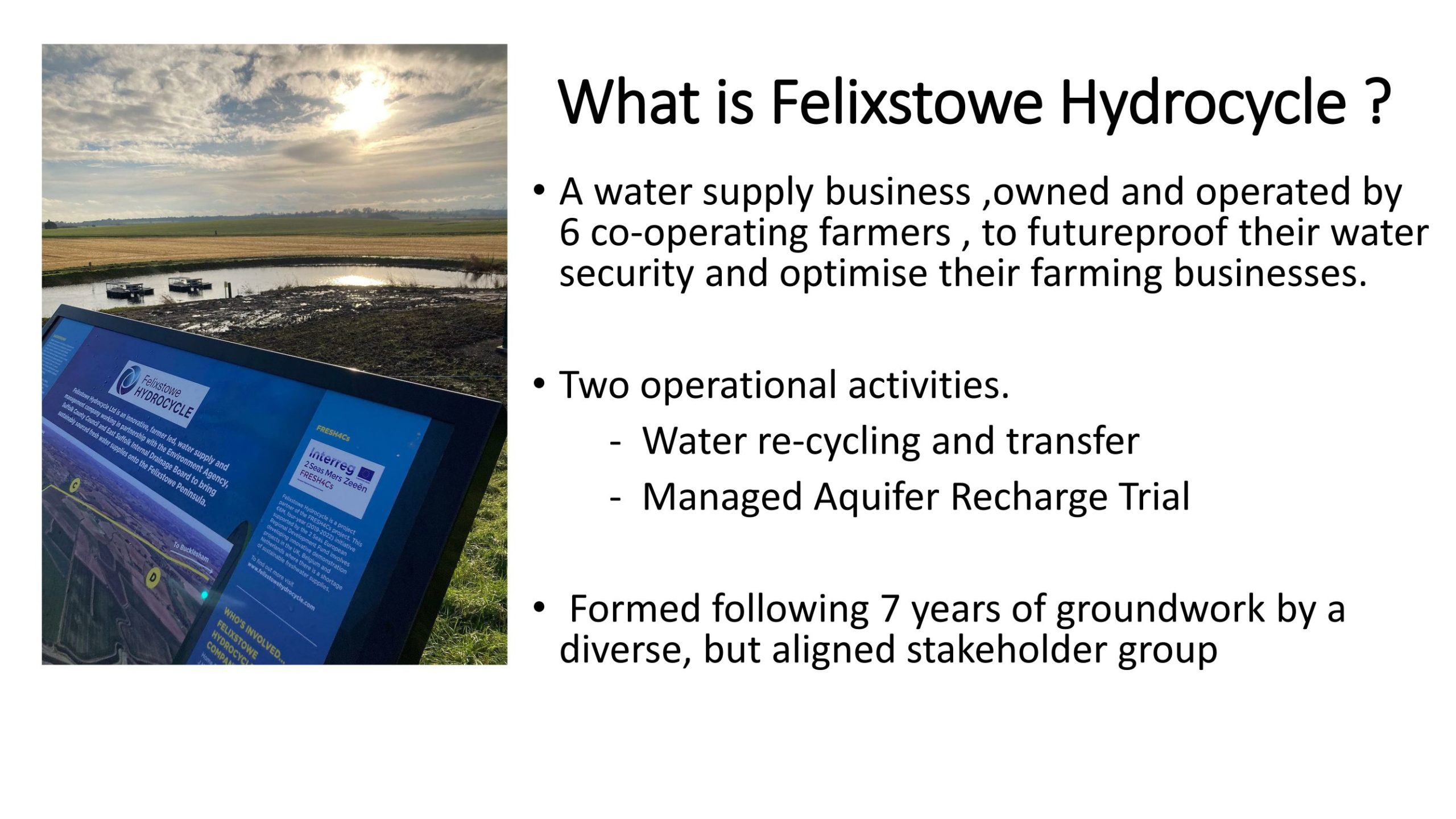
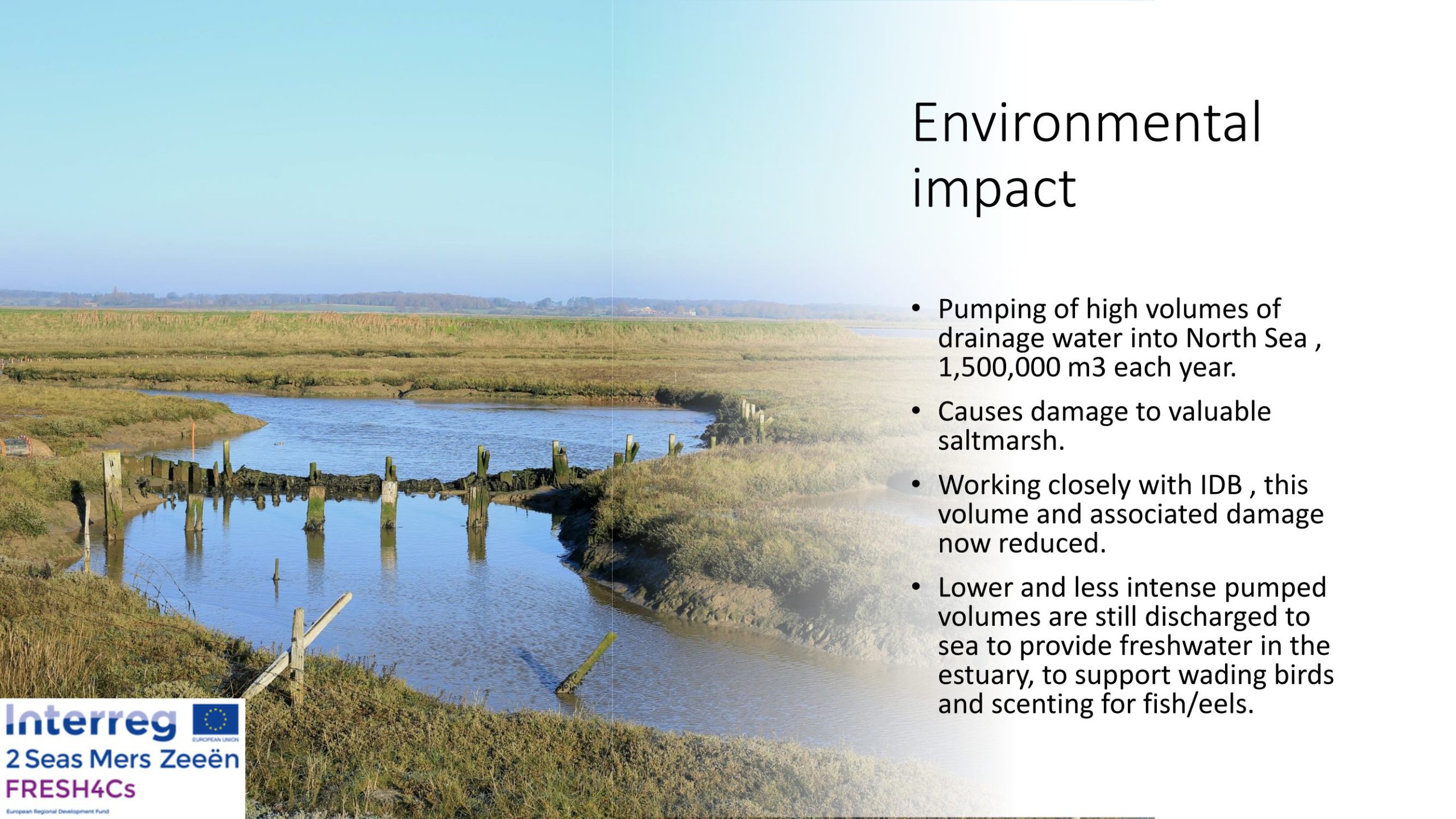
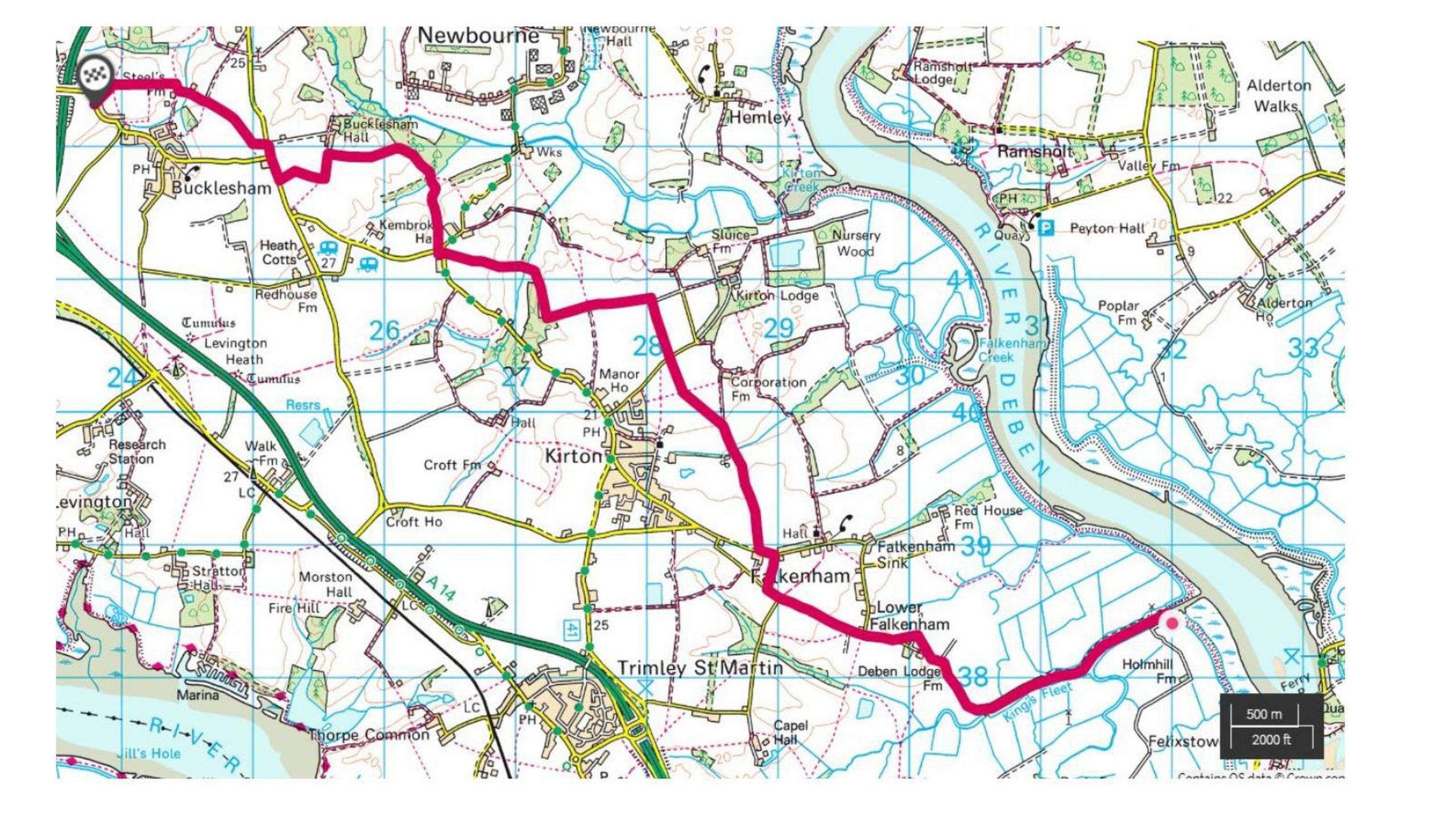
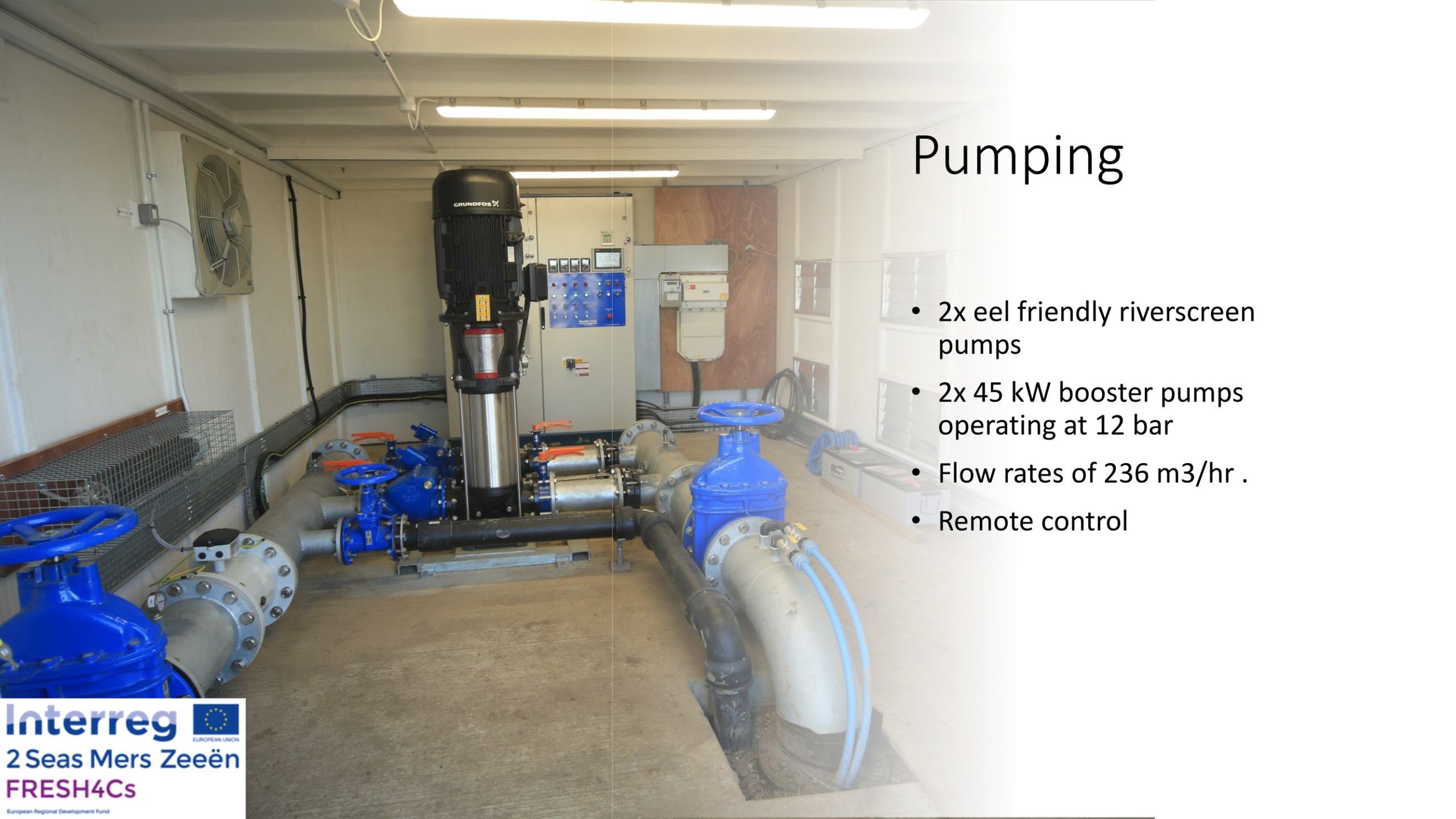
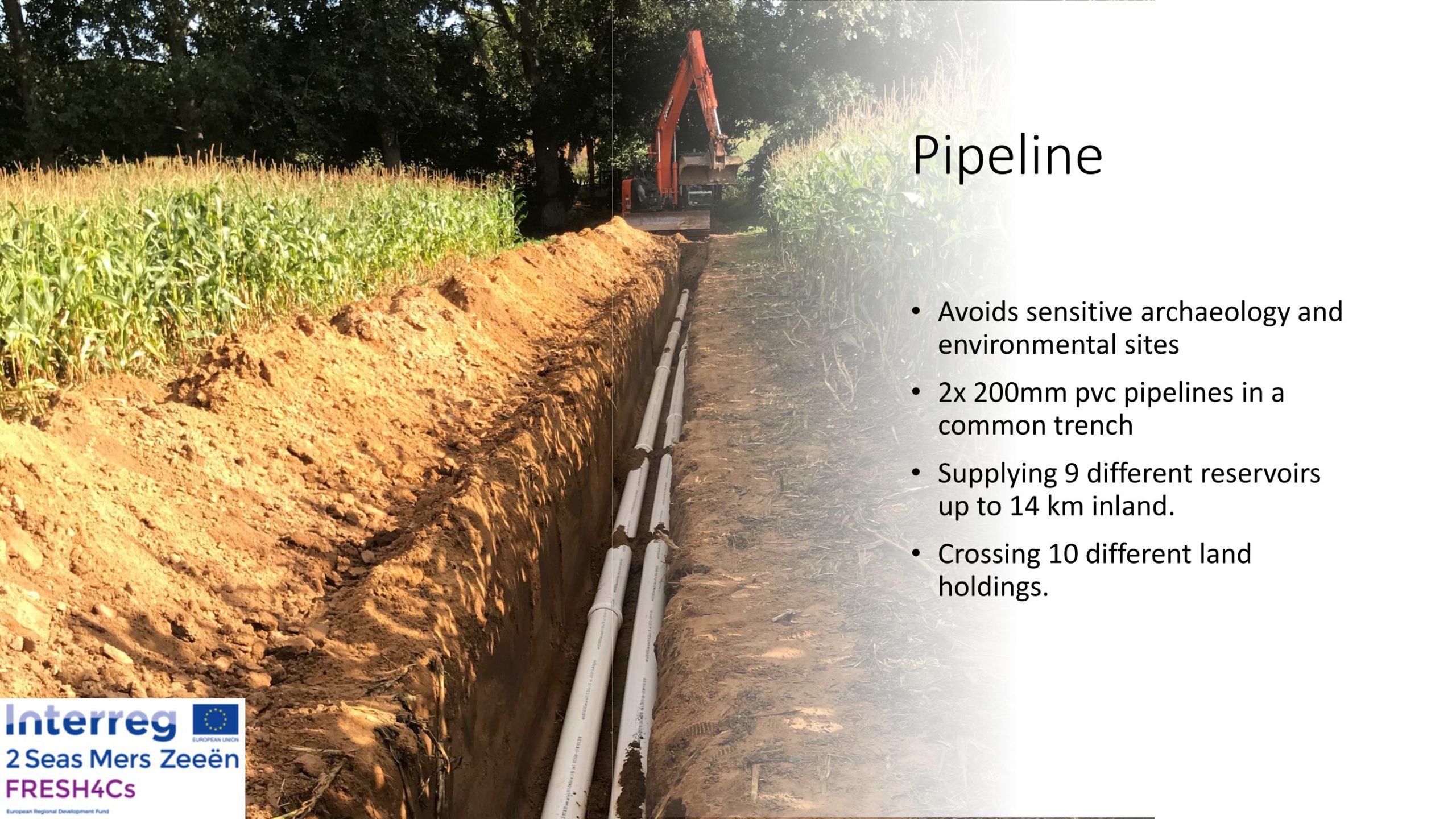
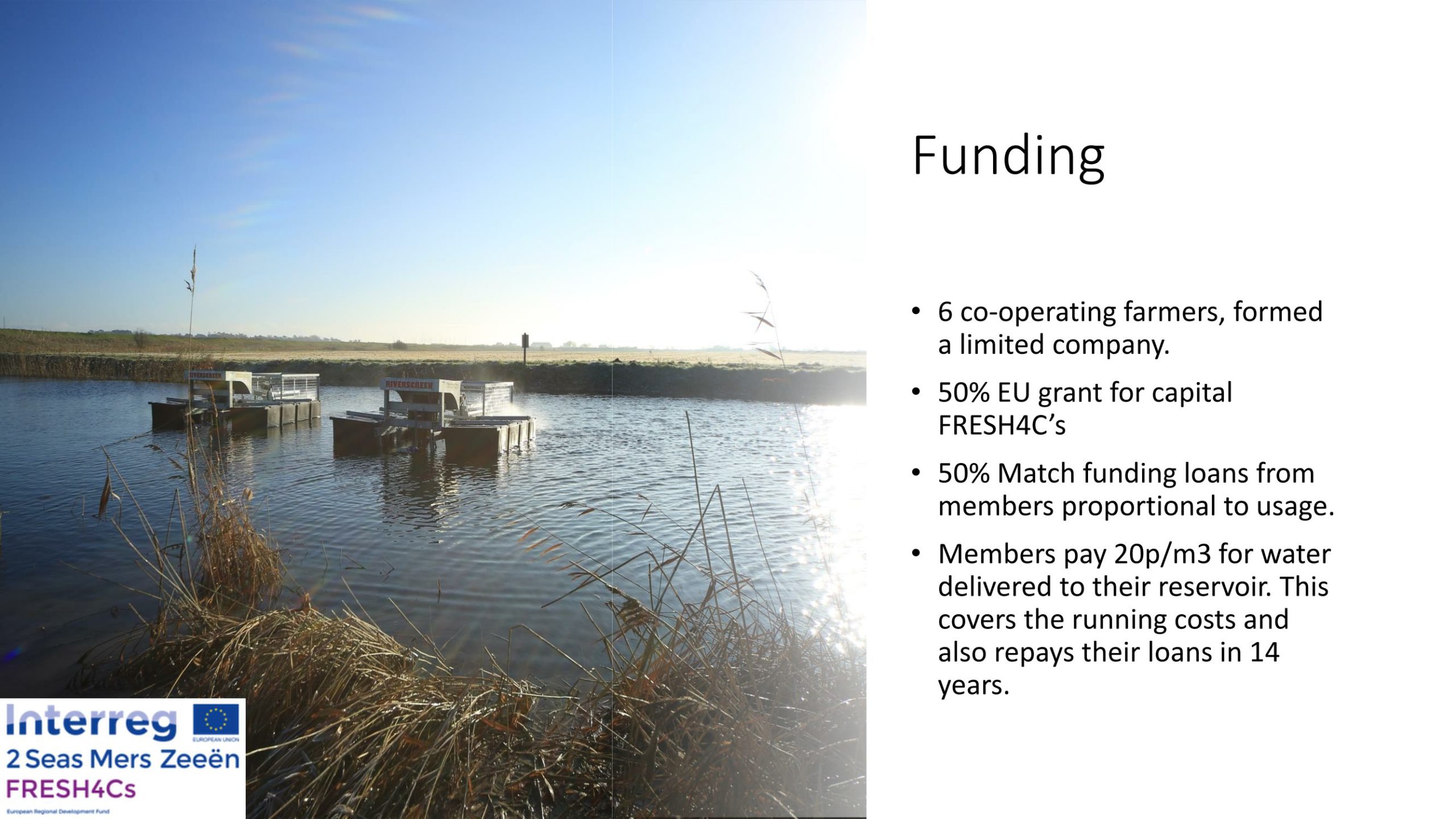
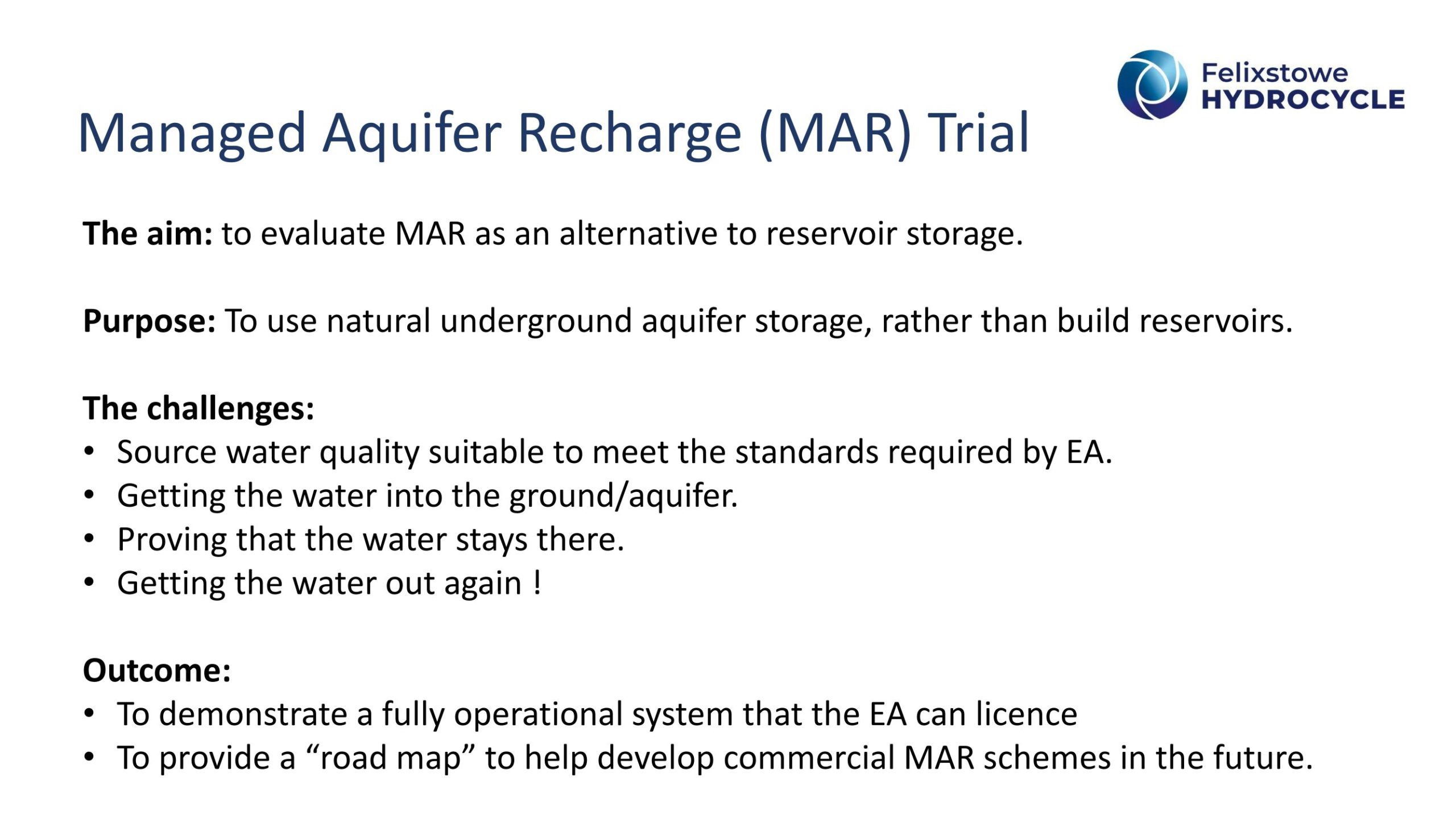
One further development is being trialled and seems promising. Where should water be stored in times of abundance so that it is available when it is most needed? Traditionally this has been in reservoirs but a technique of managed aquifer recharge (using reverse land drainage) seems promising. The storage facility seems fine – abstracting the water again has proved more difficult.
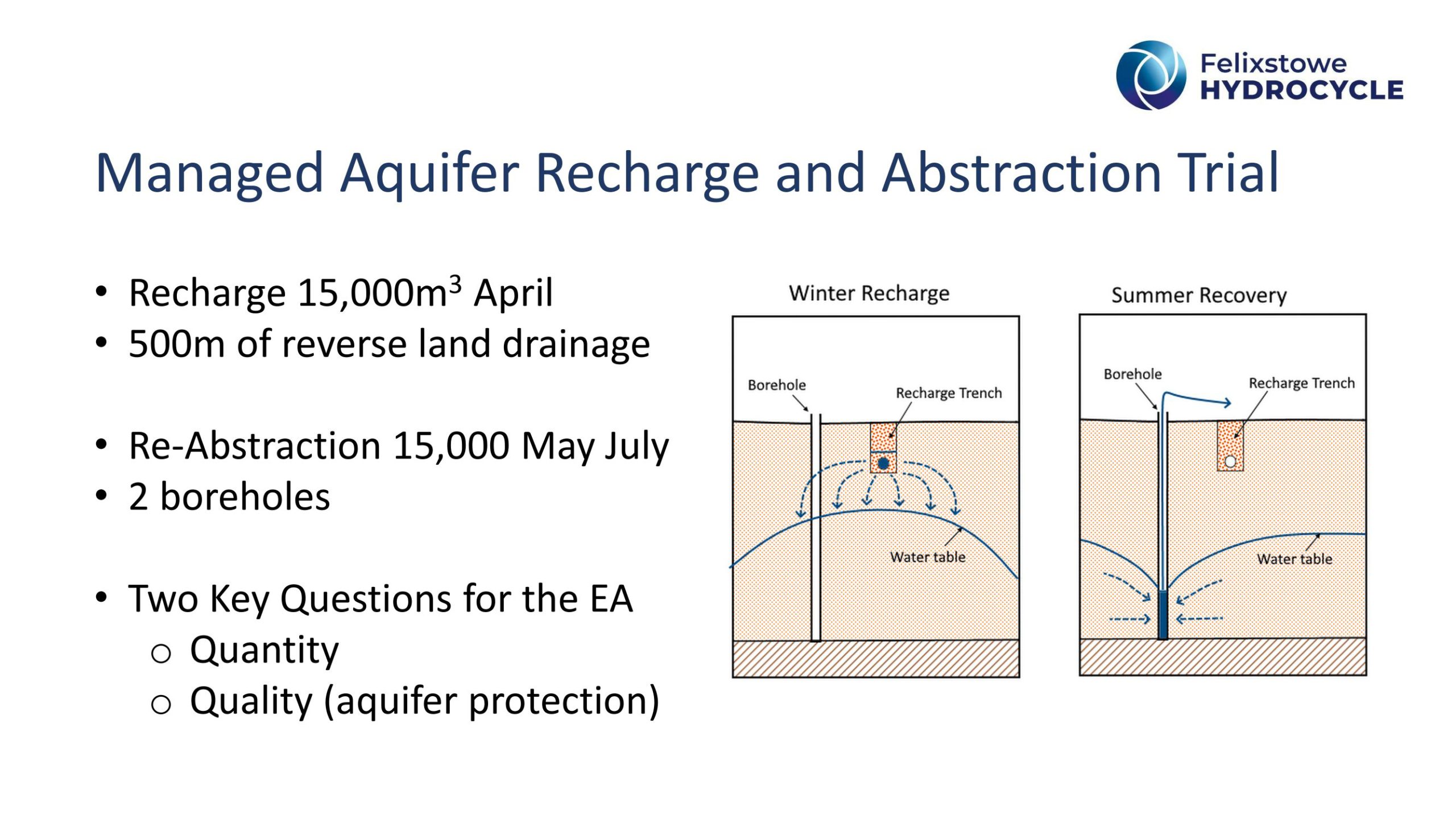
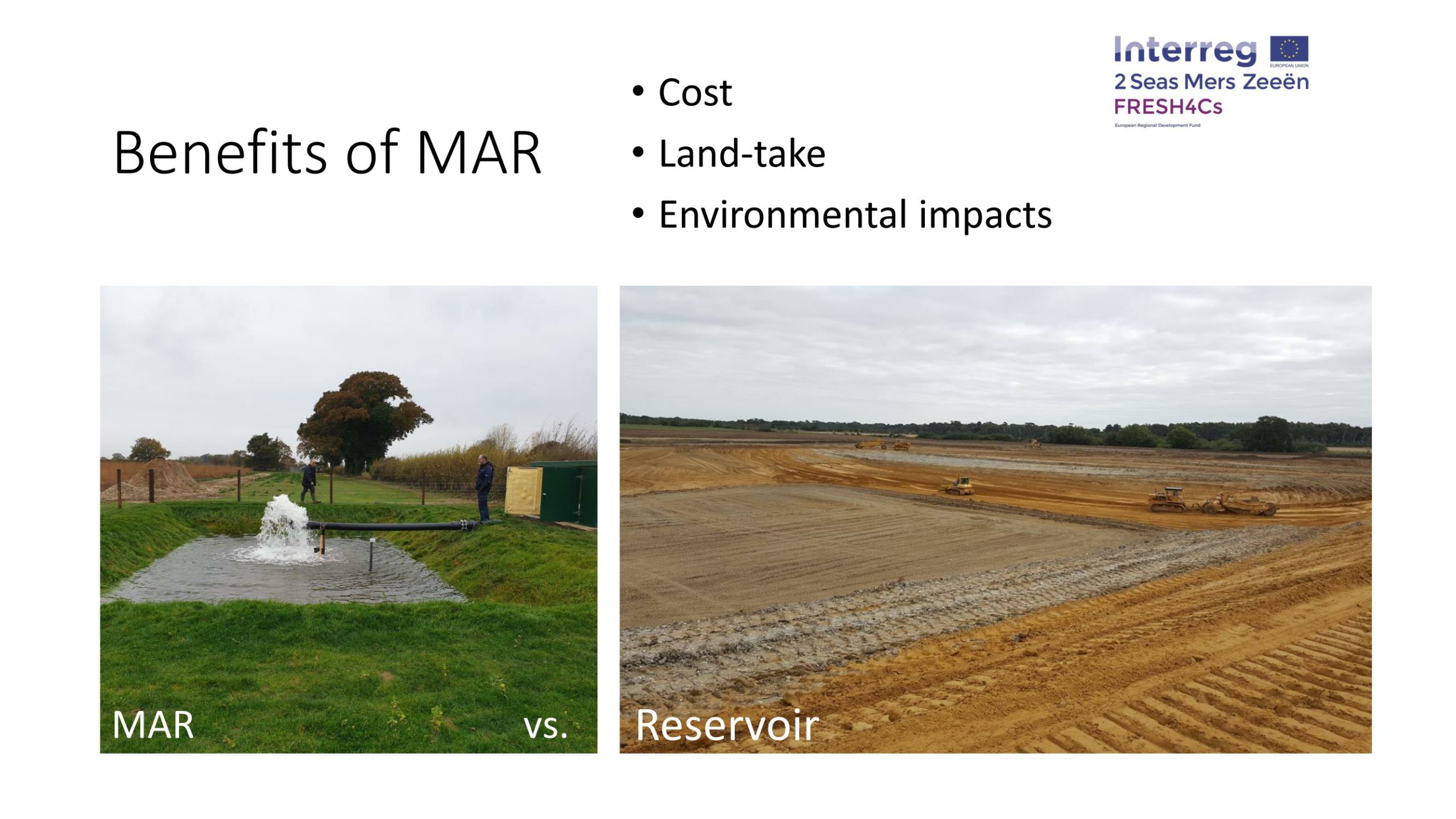
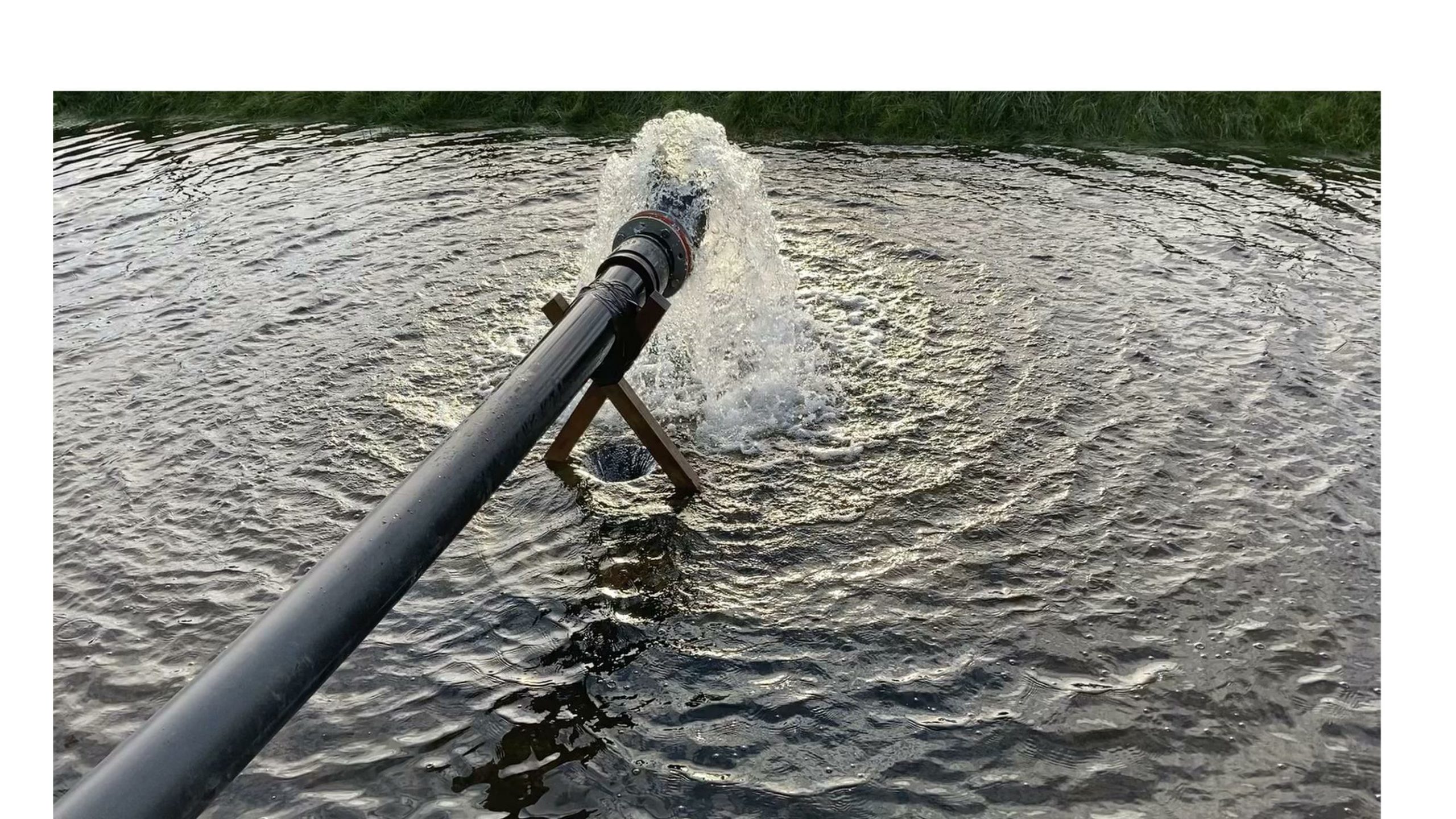
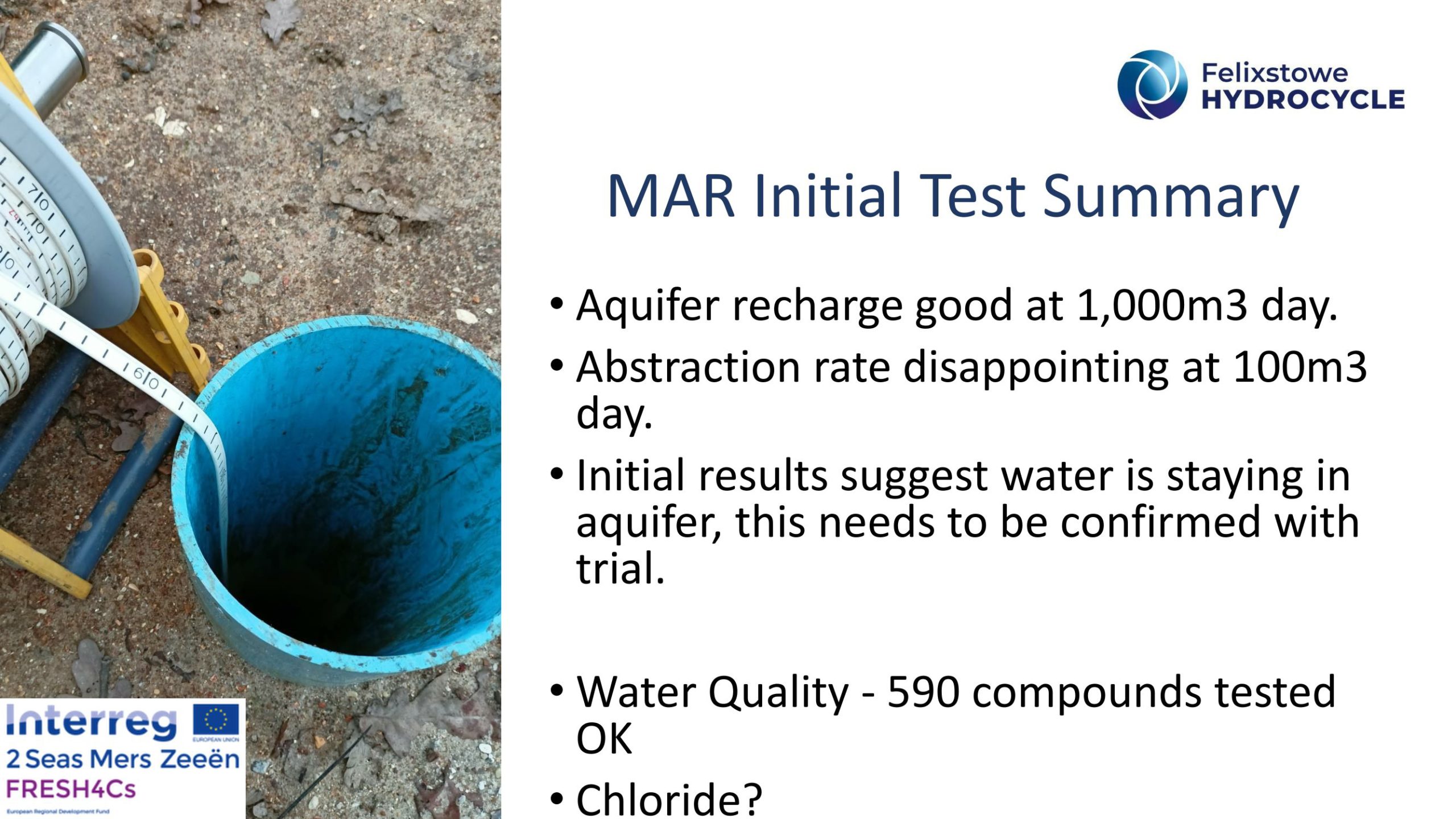
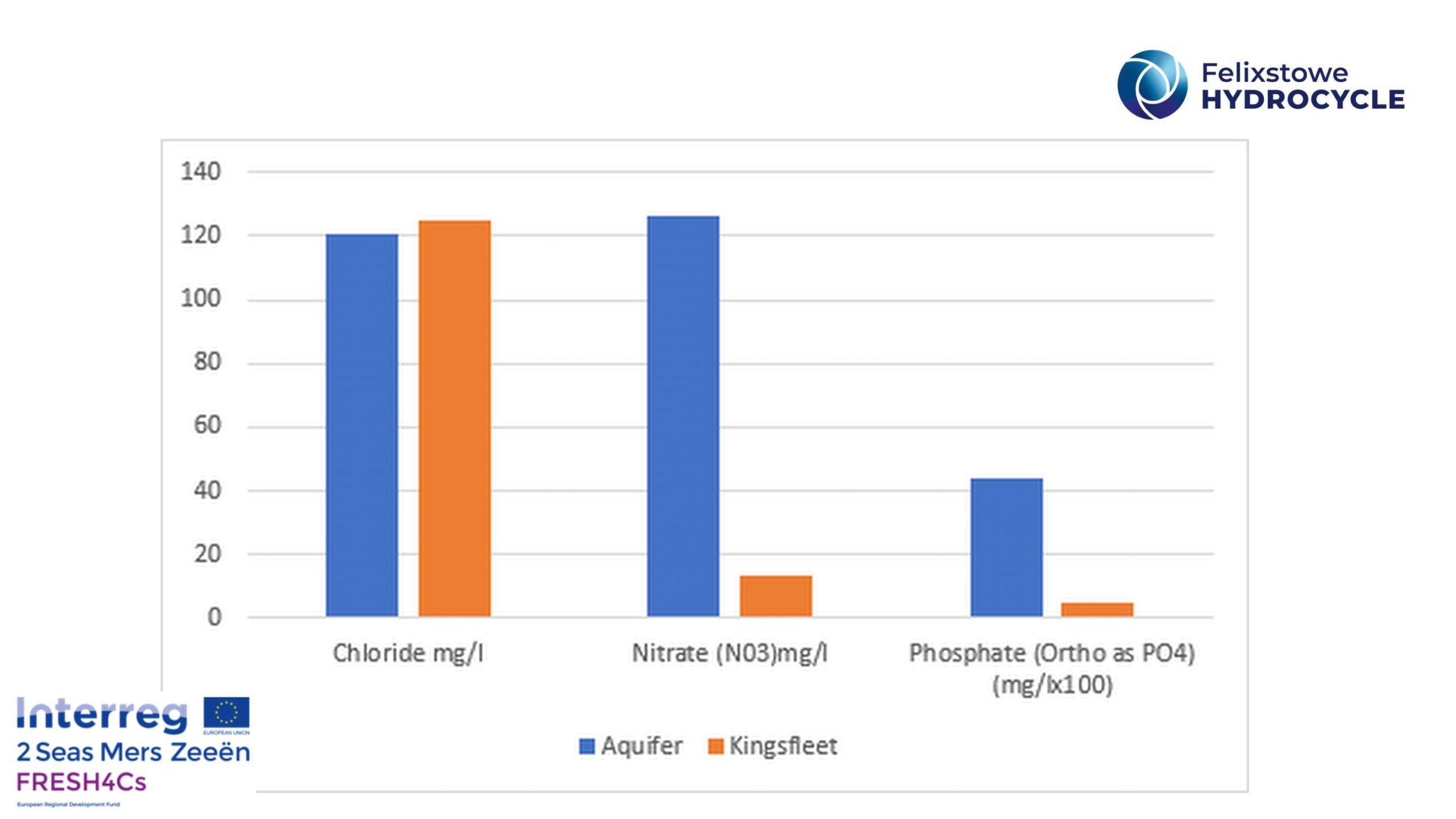
John finished his presentation with a reflection on aspects that had gone well – people working together, the basic concept, the environmental sensitivity. Cost was a problem as were the legal details of land registry requirements, more data needs collecting and further understanding developed.
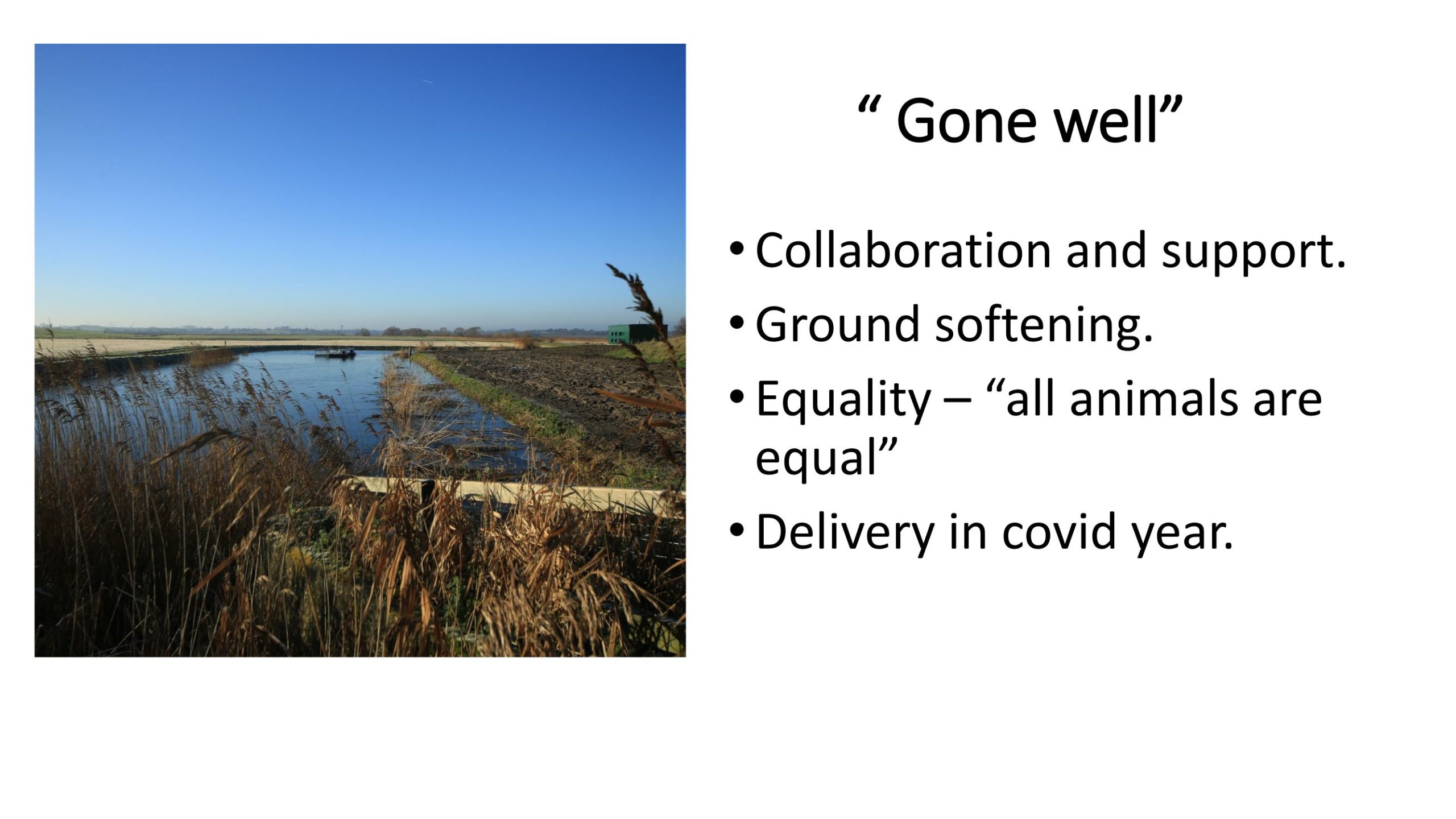
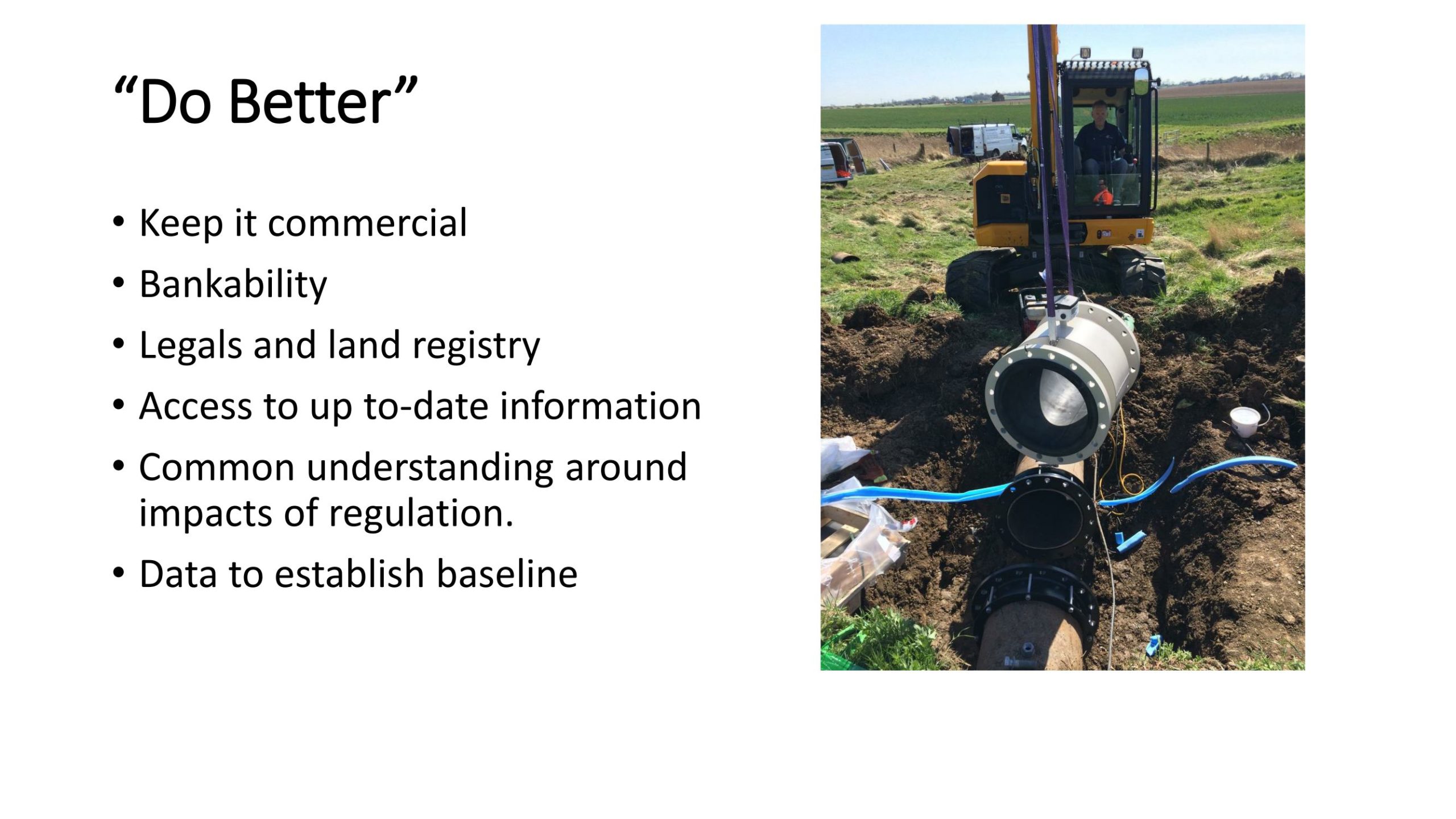
If those challenges could be met, the potential for development up the eastern seaboard is truly thrilling.
Thank you, John for such an enlightening talk. And thank you to your colleagues on the Sustainable Water Solutions project. You certainly have the good wishes of the River Deben Association
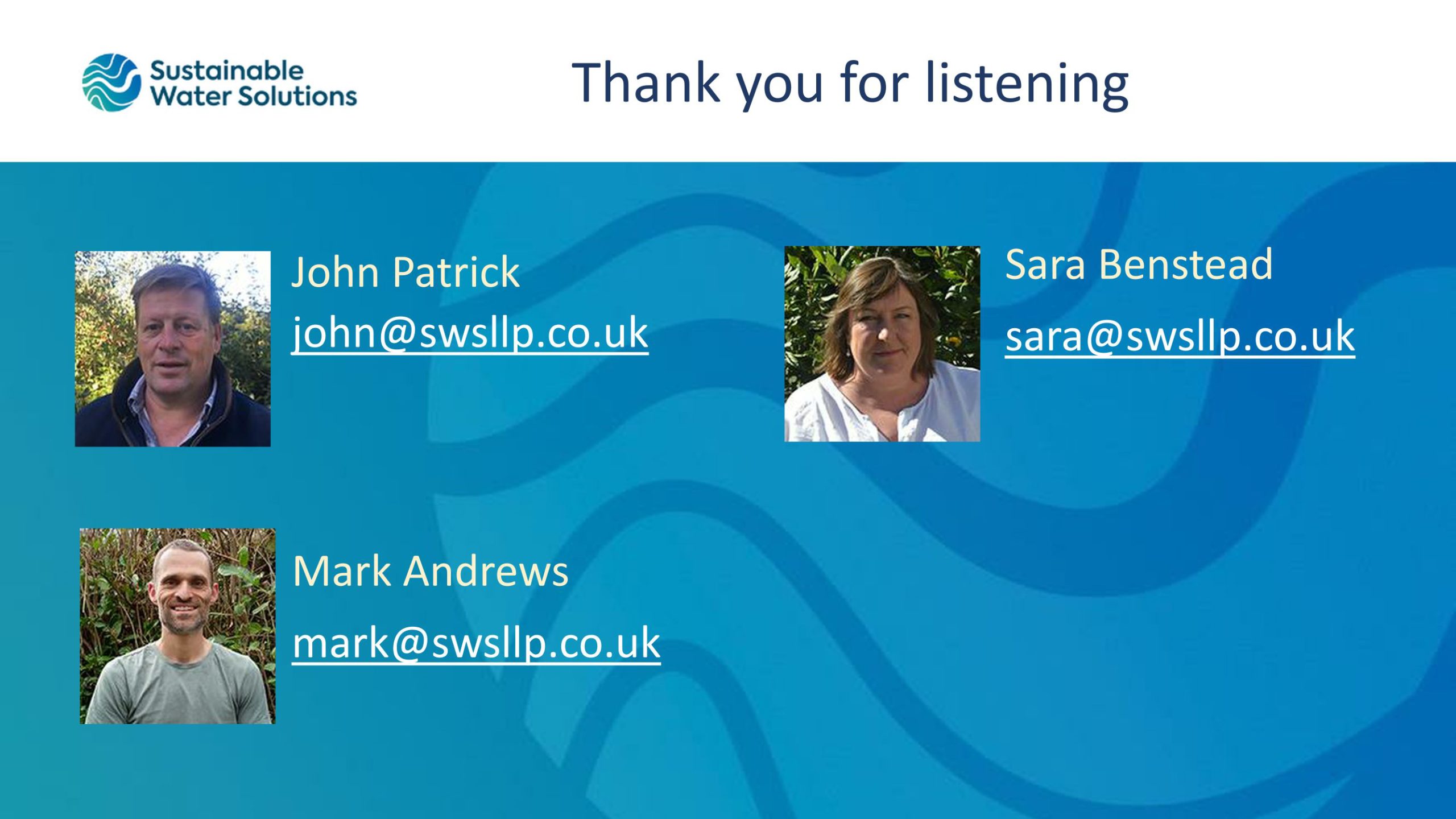
Julia Jones
Julia Jones is editor of The Deben magazine. She has just completed an ‘HMS Beehive’ edition of the WW2 classic We Fought Them in Gunboats which will be published at the Felixstowe Book Festival on June 24th 2023.

